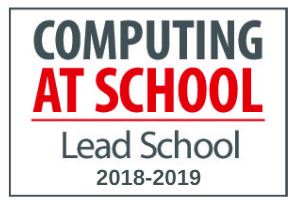More in this Section
Equipment needed for this subject
Y8 Computing
 Head of Department
Head of Department
Mr J Evason
Organisation of the subject:
Learners have 2 x 50 minute lesson each week. Learners are taught in Form Groups. Group sizes range from 16 to 32.
Key Concepts (The big ideas underpinning the subject)
- Understand how to stay safe online
- Understand how spreadsheets are used and the importance of data handling, using databases.
- Understand algorithms and how to create programs
- Understand Binary/Hexidecimal number systems and coding
- Understand coding behind software.
- Understand the technology hardware/software used every day
- Understand the history of computer development and technology/ Identify the uses of ICT/Computing in the outside world.
What will your child be learning?
Year 8 pupils will be doing aspects of Functional ICT, Digital Literacy and Computational Thinking throughout the year
- CRYPTOLOGY topic - During this unit, learners will learn about the use and purpose of cryptography and encryption of data. They will learn about the purpose and use of cryptography in everyday society and understand how the use of computers has enabled ever more secure and sophisticated methods of cryptography to be developed. They are also introduced to the Small Basic language.
- TECHNOLOGY topic- This unit introduces pupils to some technological terminology and the history of computing. They will learn about hardware including input, output and storage devices. They will also look at software including operating systems, applications software and utilities software. They will learn about the main phases in the development of computers from the abacus to the present day and finally the development of the Internet and cloud computing. This unit will give the pupils a deeper understanding of technology and make sure they are familiar with common terms which they may have otherwise been too embarrassed to ask about. This unit explains basic terminology about hardware and software, the history of computers, the Internet and cloud computing.
- Scratch Unit - In this unit, pupils build on the basics of programming using Scratch. They learn how to draw algorithms to plan code, create loops, If…Then…Else statements, use variables and broadcast messages. They practise making several different types of games and finally plan, create and evaluate their own more complex game.
- DATABASE - In this unit the pupils learn about using a relations database. They create a simple flat file database, look at data types and properties. They also create queries including basic criterion, multiple criteria and logical operators. They use a relational database, understand what primary keys are and one-to-many relationships. They create forms and reports to show the data and finally recap all the skills they have learnt to solve a crime.
- Binary Hex - In this unit the pupils are introduced to the concept of binary. They become familiar with the denary system (base 10) and the binary system (base 2). The students practise converting both from binary to denary and from denary to binary and learn about hexidecimal. They also look at how control technology is used in the modern world.
- SPREADSHEETS - In this unit Learners are going to be consolidating their spreadsheet skills by creating a business model for a company, in order to keep track of how much money they are spending and how much they are making.
Key 'Learning Capacities' in this subject
- Be able to work both independently and collaboratively
- Develop the confidence to ask for help and answer questions in classroom
- Be able to experiment and ‘play’ to discover new ways of working
- Inspire students curiosity to learn more about the technological world around them
- Persevere with more challenging work
- Apply techniques learned in previous year and other subjects
How will your child be learning?
- Highly practical lessons
- Think for themselves using reason and logic
- Paired work and group work
- Individual teacher
- Learner discussion
- Experimentation
How will learning be assessed?
- A summative test taken in lesson time at the end of every topic either online or paper based
- One formal exam
- Formative assessment of homework and classwork
- Online assessments
What can you do to support your child?
- Speak to them about what they have been doing in their lessons/ Help with homework and encourage them to learn.
- Consider downloading Freeware software such as KODU/ Scratch/ Python/ Sploder and Microsoft Office from UVHS website.
Equipment needed for this subject
- Pens, pencils, rubbers, ruler, calculator, earphones, pen drive.
Extra-Curricular / Enrichment Opportunities
- iMedia club
- BEBRAS and OUCC from Nov to Mar (in class and at lunch)
- Enrichment resources and materials = https://ulverstonvictoria.sharepoint.com/sites/ComputingIdeas
